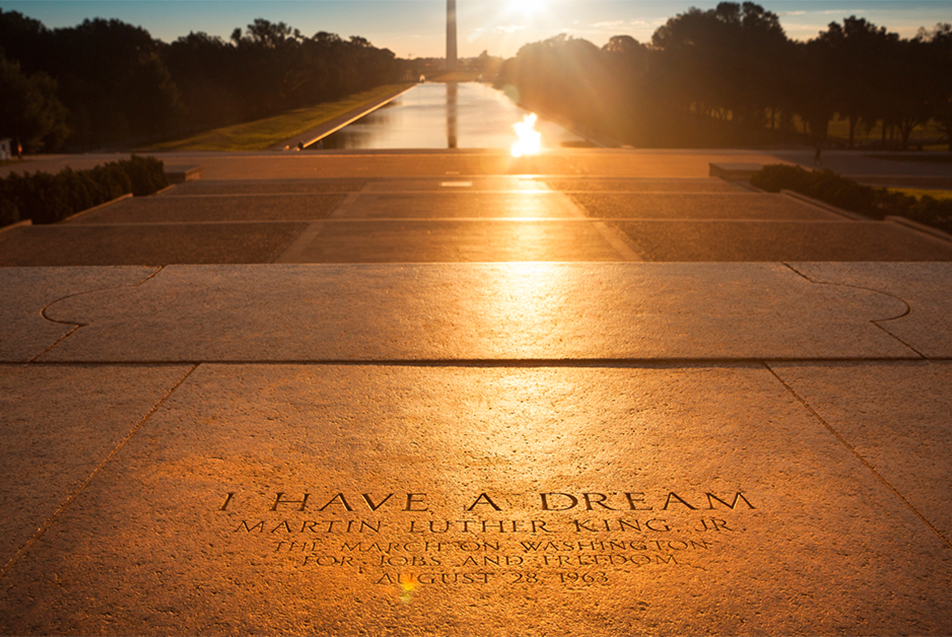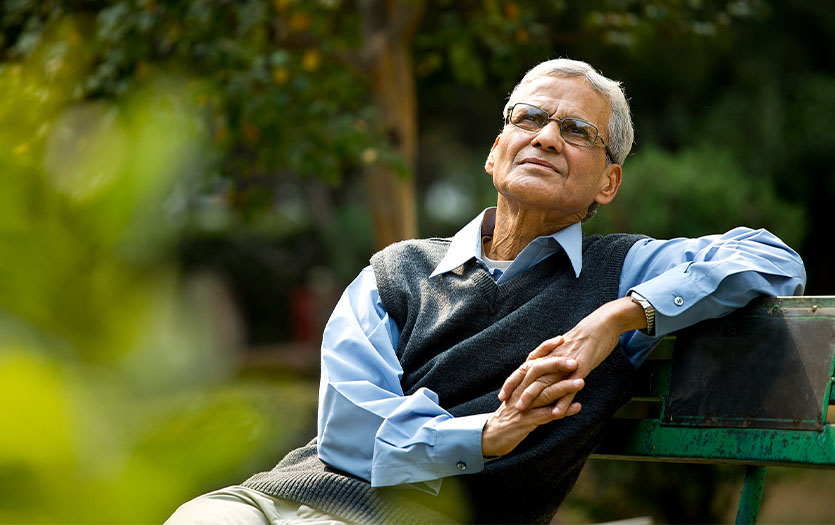
Enjoy the second installment of this series by Patrick Riecke, director, Chaplaincy and Volunteer Services, as he explores the five people who’ve most influenced his career.
Martin Luther King, Jr.
I have always been interested in Dr. Martin Luther King, Jr. Ok, maybe a little obsessed. I love all the things that he embodies.
Faith? Check.
Passion? Check.
Standing up for a cause that matters? For sure.
Public speaking as a meaningful performance art? Check.
But his significance in my life took a giant leap eight years ago.
I had been a youth pastor ever since I graduated from college, and the time had come for me to make a transition. I loved the church that I was serving, and they loved me, but I needed a change.
There were really two choices I could make: One, I could start applying to churches that were looking for a 29-year-old lead pastor with eight years of youth ministry experience (but that would mean I would have to buy a tie … and a dress shirt … and probably some nicer shoes). Or, I could go back to school and pursue my Master’s degree. But, since we were expecting our fourth child and not independently wealthy, the case for simply brushing up my résumé was looking good. (Time to look for some shiny new shoes!)
But first, my church sent Kristen and me to a place called the Blessing Ranch. The ranch was in Colorado, out in the middle of nowhere. The leader there met with us every day for a week. We got some rest. We climbed mountains. The idea was that while we were there we would figure out what was next.
I picked only one book to read while we were at the ranch—a biography of Dr. Martin Luther King, Jr. As I devoured his work in the church, then local civil rights groups, then regional politicians, then with the president, I was enamored with his story all over again.
But a surprising part of this young preacher’s story helped make my decision about what was next. Dr. King was picked as the figurehead for the civil rights movement in part because of his education. Because he was not just Rev. King, but Dr. King. His education had opened doors for him, and millions to come after him.
Like Yogi Berra famously said, “When you come to a fork in the road—take it!” As I stood at a fork in the road of my own life, I expected that reading a book about a preacher (perhaps the best preacher in American history), would likely lead me to the pulpit, not the classroom. But it was as though Dr. King stood before me and asked, “Would you like to preach and preach only? Or would you like to preach and change the world?”
I cautiously looked into the eyes of my wife, who was the mother of our three small children and pregnant with our fourth, and said to her, “I think I am supposed to go back to school.” The fact that she didn’t leave me on that mountain in Colorado was a good sign.
After graduation we quickly discovered that further education doesn’t always equate to advancing your career when you are a clergy member. However, a few years later, I applied to be a part-time chaplain at Parkview. Master’s degree not required. A year later, I applied to be a supervisor in the same department. I got the job. But, again, no Master’s was really necessary. But then the director in my department moved on to a new opportunity after 22 years of service. The gaze of my co-workers naturally fell to me as I became the interim-director the same day. And guess what? To be the Director of Chaplains and Volunteers, you need a Master’s degree.
I was hired for the job a short time later.
I felt as though Dr. King was smiling that day.
It’s unlikely I will ever impact the world as much as Dr. King, but I am happy to be one of the millions whose path has been forever altered by his life and words.
If it wasn’t for Dr. King, I would not be where I am today. He built my roller coaster. I stand on his shoulders.



